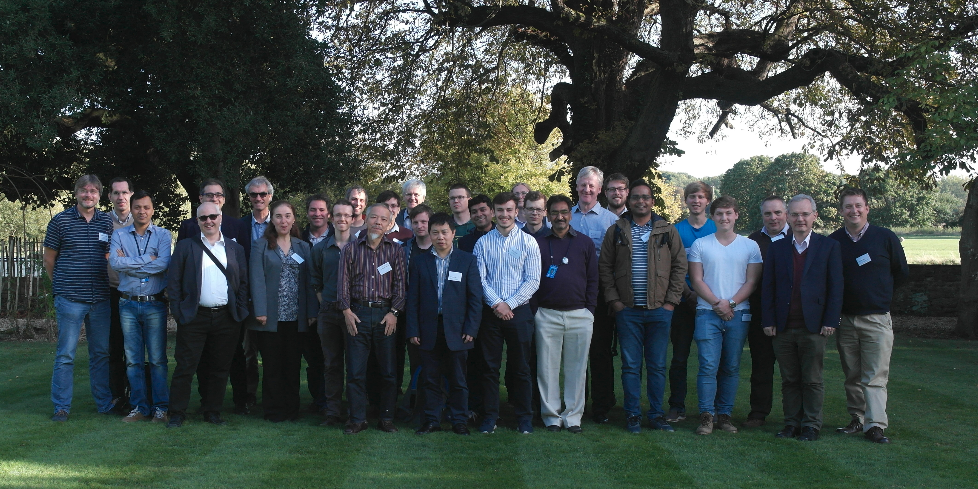24-25 September 2018 Cosener’s House, Abingdon
This meeting brought together 30 experts from 9 countries (Austria, Canada, China, Germany, Japan Sweden, Switzerland, the United States of America and UK). The theory of conventional superconductors (BCS theory) was one of the great successes of theoretical physics in the past century. Not all superconductors, however, obey it. Such “unconventional superconductors” include heavy-fermion, high-temperature (copper-based and iron-based), triplet, and noncentrosymmetric superconductors. Over the last few decades, a qualitative understanding of the phenomenology of such systems built up. In recent years, however, this emerging understanding has been shaken by the discovery of a number of new superconducting systems that do not seem to fit in. Many of these new superconductors feature a combination of spin-orbit coupling, multi-band pairing and/or lack of inversion symmetry, leading to the possibility of much more complex order parameters than have hitherto been considered.
The aim of the workshop was to develop a new understanding of superconductivity through which the more complex types of unconventional superconductivity that we are now encountering can be understood. Topics covered included the latest advances on well-known unconventional superconductors such as cuprate and iron-based superconductors but had a strong focus on materials whose unconventional properties have only recently come to the fore including LaNiC2, LaNiGa2, and the Re-based non-centrosymmetric superconductors, many of which break time-reversal symmetry. There was a deliberate effort to keep a 1 to 2 balance between speakers taking theoretical and experimental approaches – each session had 1 invited talk given by the former and 2 by the latter.
This conference was organised by the Unconventional Superconductors: New Paradigms for New Materials collaboration involving the Universities of Kent and Bristol in Partnership with the Rutherford Appleton Laboratory.

